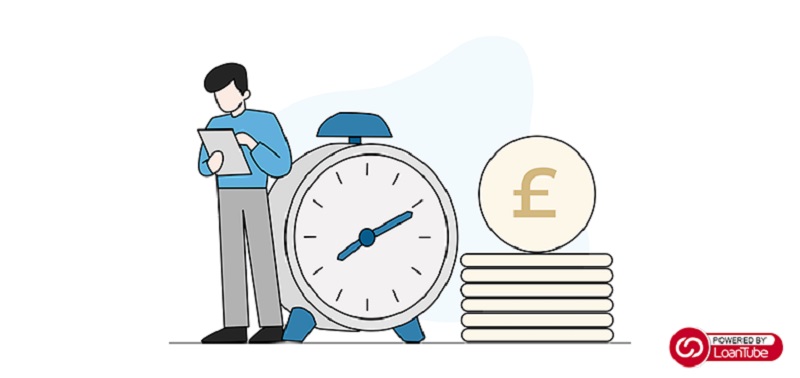Can I Avail of a Loan Repayment Holiday?
We’re on the verge of a third lockdown, and it feels like we’ve been stuck in our homes forever. Economies are still recovering from the financial wreckage caused by COVID-19. Countless people have been put on furlough, while some have lost their jobs altogether. This has led to involuntary wage cuts and loss of income stream for many. Some are even finding it difficult to regulate day-to-day cashflow.
The UK government has rolled out various measures and schemes to help citizens during this crisis. Among these grants and aids is the loan repayment holiday scheme designed to help debtors unable to repay their dues to the pandemic. This initiative allows people to defer their loan payments for a period of 3 months.
But does everyone qualify for this payment holiday? What happens once this 3-month window expires? Read on to find out.
What is a loan payment holiday?
A payment holiday, also referred to as a deferral, is a set period wherein your lender allows you to defer payments. If you only want to reduce your monthly payments for a brief period, you can apply for a partial payment holiday.
Payment holidays are designed to help alleviate the financial burden of people struggling to make payments due to COVID-19. However, it is important to keep in mind that:
- You will have to resume payments as soon as your payment holiday is over.
- The interest on your loan will continue to build unless your lender agrees to a different arrangement. If not, then a piled-up interest may slightly increase your repayable amount.
- You may end up paying a higher overall sum in the long term if you enrol in a payment holiday.
- In case your financial circumstances improve, you should start repaying whatever you can to avoid extra costs.
If you are yet to avail of this facility or have taken payment holidays of less than six months, you can only apply for further until March 31’ 2021, as per the FCA’s Payment Deferral Guidance. All payment holidays conforming to the guidance should end by July 31’ 2021.
All holidays taken after March 31’ 2021:
- Shouldn’t exceed the 6-month holiday window limit.
- Should not have any breaks in support.
People who have already used up their 6-month holiday window will not be able to extend their deferral period. However, if you continue to face financial hardships, your bank may be able to provide you with suitable assistance appropriate to your circumstances.
How does a loan repayment holiday work?
Direct debit payments: Once you start your repayment holiday, most banks will automatically cancel your debiting instructions from their system. You won’t have to cancel your payments manually.
Standing order, bill payments: You will have to manually cancel your bill payments at the beginning of the deferral period.
Am I eligible for a payment holiday for my personal loan?
You may apply for deferral if you’re in arrears for the following financial products:
- Personal loans
- Credit cards, store cards and catalogue cards
- Vehicle finance – including hire-purchase and leasing agreements
- BNPL schemes, rent-to-own and high-cost short-term loans (pawnbroker agreements)
In case you’re eligible for a payment deferral, you can only avail a holiday window of up to 3 months at a stretch. Lenders wouldn’t allow you to exceed your repayment period beyond 6 months.
It is possible that your bank proposes alternative methods for you to deal with your crisis. In most cases, if a bank feels that a payment holiday isn’t suitable for you, they should offer you methods that best fit your circumstances.
In case your payment holiday doesn’t comply with the Payment Deferral Guidance, i.e., your arrears are unrelated to COVID-19, you will not be eligible for a payment holiday. You may, however, seek support from your bank or lender and come to a mutual agreement on payment methods.
In the case of Buy Now Pay Later (BNPL) schemes and pawnbroker agreements wherein your repayment period hasn’t begun, lenders may agree to extend this span and give you some time to improve your financial standing.
Will a payment holiday impact my credit score?
As per the Payment Deferral Guidance, lenders or banks will not consider the outstanding arrears as ‘missed payments’. Since these negative items won’t be reported to credit bureaus, these repayment failures will have no impact on your credit score. This will help you stay steady on the track of recovery at the end of your payment holiday.
However, if your lender offers you additional support after the 6 month payment holiday and continues to defer payments for a brief period, it may get recorded onto your credit profile, as per the usual reporting process. Thus, if your lender agrees to provide you with additional support, they should inform you of the repercussions that this extended payment holiday can have on your credit score.
What happens when my personal loan payment holiday is over?
Once your deferral period approaches its end, lenders and banks will reach out to you in advance to discuss your repayments options with you. It would be wise for you to honestly examine your situation with the lender and develop a payment arrangement. If you don’t answer your lender, they might resume the repayments (direct debit) automatically.
These missed repayments will now add to your outstanding arrears and may end up accruing more interest. A higher interest implies that you’ll be paying a substantially higher monthly instalment. Just how high it gets depends upon how long you have until your loan term ends.
Will I not be able to apply for a payment holiday after March 31’ 2021?
If you’re stuck in financial turmoil even after March 31’ 2021, then April 1’ 2021 onwards, your lender will provide you with a personalised solution, considering your financial circumstances.
Apart from people who’re struggling for the first time, this support is also available for people who have already received support, such as a repayment holiday.
Your lender should:
- Help you with personalised methods to mitigate your hardship.
- Be open to long and short term repayment options.
- Understand your situation and give you time to get back on your feet without pressurising you.
- Direct you towards financial guidance if the need arises.
- Set a sustainable and affordable repayment plan wherever possible – considering your holistic financial situation (day to day expenses, other debts, etc.).
- Prevent your arrears from escalating (after a repayment plan is in place) by suspending, reducing, waiving or cancelling any interest, fees or charges to make that happen.
Conclusion
A repayment holiday is simply a deferral period and not a waiver. It is a responsible initiative by the government to help citizens recover from the gigantic financial blow caused by Coronavirus.
If you’re not in a position to repay your arrears after the deferral period ends, have an honest conversation with your lender and try to reason with them. A sustainable agreement can help you and your lender stay in a favourable position.



